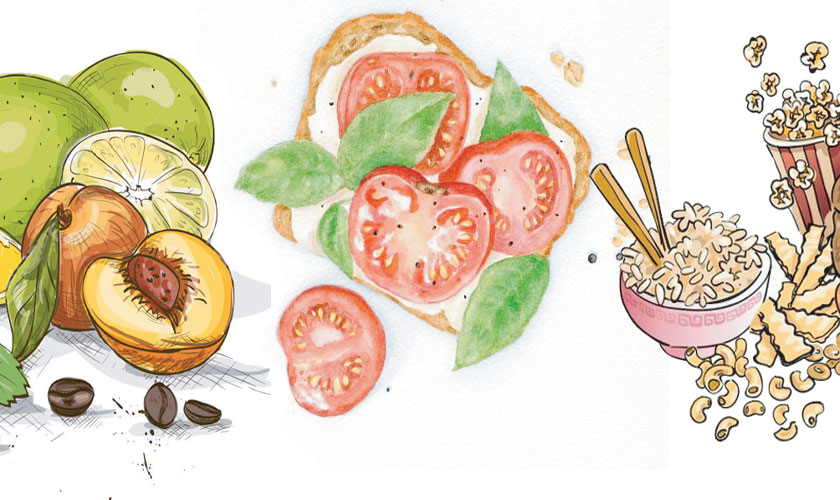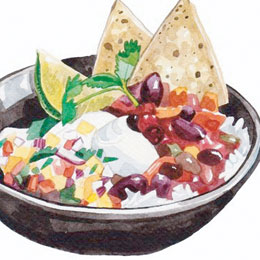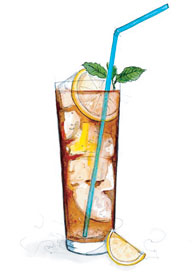The trend of eating healthy is fast catching on. Most of us want to shed those extra pounds and many opt to eat healthy to stay fit and keep diseases at bay. Yes, there is no harm in doing so, as following a healthy regime can go a long way. However, the problem is that many of us confuse healthy eating with strict dieting where we restrict ourselves from certain food items that are essential for us. Search the net and you will come across so many crash diets that claim to be healthy and help you lose a few pounds. The fact is that in the long run you will be limiting your nutritional intake that will make you feel weak and lethargic. After a few days, you will feel frustrated and will ultimately go back to your old, unhealthy eating habits.

What is clean eating?
When we talk about healthy eating, how can we forget clean eating? You must have heard a lot about it, but you may not exactly know what it is or how to go about cleaning up your diet. Fret not! It is as simple as the name suggests itself. Clean eating can be best described as removing all processed, artificial foods from your diet and focusing on healthy, whole, unprocessed foods. It is about eating more of the best and healthiest options in each of the food groups and avoiding the not-so-healthy ones. That means embracing whole foods like vegetables, fruits and whole grains, plus healthy proteins and fats. It also means cutting back on refined grains, added sugars, salt and unhealthy fats. And since you don’t have to count calories or give up whole food groups, it’s easy to follow. Want to go the healthy way? Well, here are a few helpful tips to get you started.
Say no to processed foods
Just to save time, many people resort to processed and packaged foods that are convenient and involve minimum preparation time. Most processed or packaged foods are full of sodium, sugar and fat. Not to forget, such foods contain high amounts of preservatives, man-made colourings and other added chemicals. However, not everything that comes out of a box, bag or can is bad for you. For instance, whole-wheat pasta, baby spinach and chickpeas are all ‘clean’ packaged foods as they are minimally processed and provide nutrients like fibre and vitamins.
If you want to clean up your diet then the best way is to carefully read the ingredients mentioned on packaged foods. If the list is long or includes lots of ingredients that you can’t pronounce, try to stay away from it. Instead, start preparing fresh meals at home using fresh vegetables, lean meat, lentils, eggs, etc. Don’t forget to include milk, fresh fruits, nuts and legumes.
Switch to healthy whole grains
Whole grains offer far more nutrients and fibre than the refined ‘white’ varieties available in the market. A research shows that overweight people who ate wholegrain wheat products lost more weight than those who ate refined wheat, and they also came out with lower cholesterol levels. Whole grains tend to have a lower GI (glycaemic index), which makes you feel full for long and maintain your energy levels and concentration.
Include more fresh veggies in your diet
Fresh vegetables are not only full of vitamins and fibre, but they are low in calories and you can eat lots of them without gaining weight. As vegetables are unprocessed and come straight from the farm, they are as clean and healthy as can be. Make sure you wash them well before you eat. The recommended daily amount for most adults is two-and-a-half to three cups. The easiest way to add some veggies in your regime is to start your meal with a salad, or begin your day with vegetables by adding peppers and onions to an omelette.
Up your fruit intake
The best alternative for sweets is fruit. Nothing beats fresh fruits as they are naturally sweet and are also rich in potassium and vitamin C. Just like vegetables, frozen, canned and dried fruit is minimally processed and can be a great clean-eating choice as well. Just double-check the ingredient list to be sure that there is no sugar added. The recommended amount of fruit for most adults is one-and-a-half to two cups per day. And remember, always choose whole fruits over fruit juice.
Cutting down on sugar
Be it candies, desserts, chocolates, etc - many people just can’t resist sweets. And this results in consuming too many added sugars. According to a research, women can take up to six teaspoons of sugar per day and men can have nine teaspoons per day. In no way do we mean to cut out on sweets completely, but for clean eating it is important to cut down on added sugar and limit sweets like soda, candy and baked goods. Also, keep an eye on sugar added to healthier foods like yoghurt and cereal. Look for foods without sugar as an ingredient, or make sure it’s listed at the end, which means it’s used in lesser amounts.
 Fats are important
Fats are important
Usually, what we do is chuck out fats completely out of our diet. This is absolutely wrong as your body does need a certain amount of fat. So, instead of cutting out fats entirely, focus on consuming healthy fats. Avoid saturated fats like those in butter, cheese and meat, and increase the intake of healthy fats such as olive oil, canola oil and the kind found in nuts and fatty fish.
Too much salt is harmful
Most of us tend to consume more than the recommended 2,300 mg of sodium per day - that is about one teaspoon of salt. Cutting back on processed foods will automatically help you reduce your salt intake. Too much salt can increase your blood pressure, so make sure to minimize your salt intake while cooking.
Portion size matters
In today’s super-sized world, it can be hard to know what a healthy portion looks like. Many of us tend to consume more than we need on a daily basis. For an ideal lunch, lean protein should take up a quarter of your plate, another quarter should have low-GI or wholegrain carbs, and the remaining half should have salad or vegetables. Have a light dinner as all you do after dinner is watch TV or go to bed, so you don’t actually need a lot of energy.
Drink more liquid
When we say ‘drink more liquid’ that does not include soft drinks or juices. Yes, when you are clean eating it is important to avoid such sugar-packed drinks from your diet as much as you can. Instead, sip on water all day long as it helps in digestion, absorption and transportation of nutrients. Water also eliminates waste from your body and regulates body temperature. Make sure you drink at least 10 to 12 glasses of water daily. You can even drink herbal or green teas that help cleanse your body naturally.